This month’s Inequality Question (chosen by children living on the streets of Uganda) focused on: “How can we best reduce pollution and how important is it for our futures?”
We received interesting responses from all over the world!
To make sure all the young people we support were as safe, they (and our team) were all following COVID-19 safety guidelines while conducting this debate.
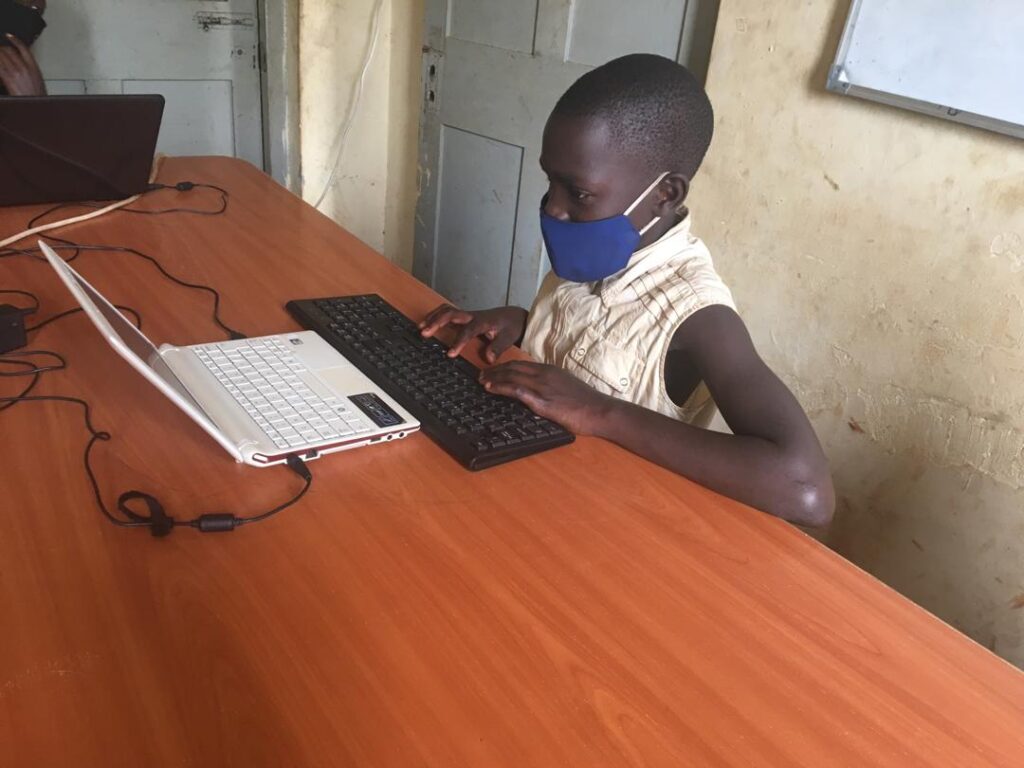
There were some recurring themes throughout the discussion, such as individual behaviour changes, government interventions and swapping out high pollutants with greener alternatives.
Let’s have a look at some of the comments…
Education
Some people thought we should focus more on education so that others are aware of the impact of pollution:
- “By informing people about the dangers of pollution and also the beauty of protecting our environment. It is said that knowledge is power, therefore if people are equipped with such knowledge, pollution will be reduced and our environment will be kept clean” – Kirunda, Uganda
- “Educate all to not waste resources which are finite and find sustainable alternatives. It is very important for future generations.” – Sheila, UK
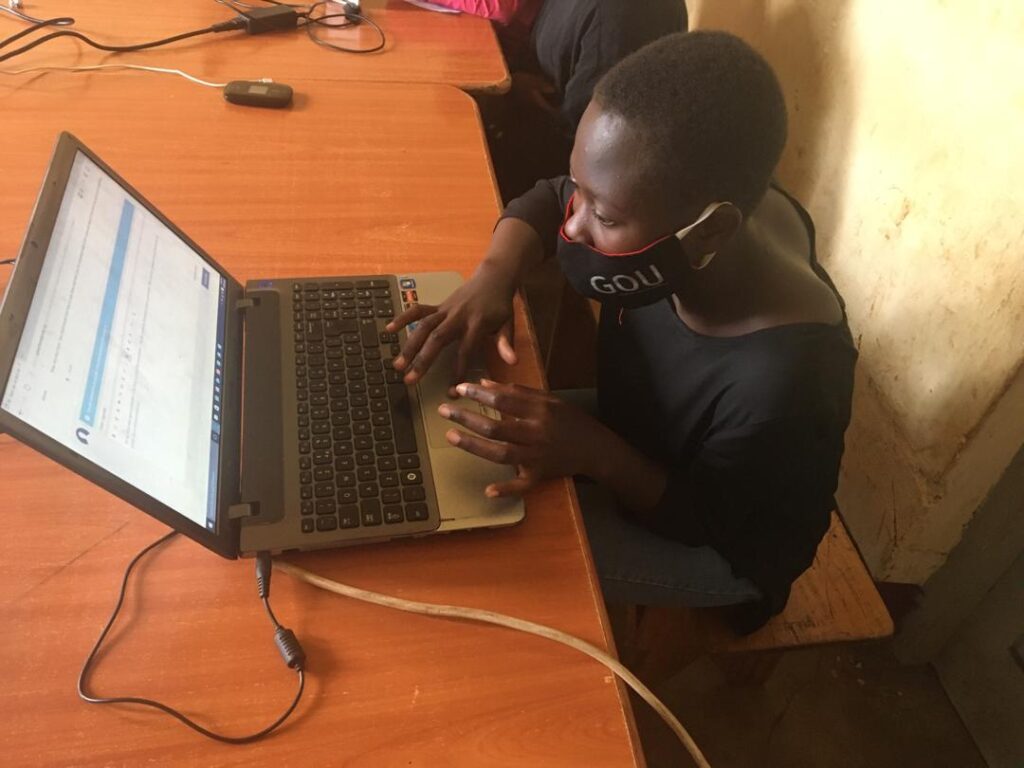
Making lifestyle changes
Others wanted to focus on changing some ingredients, chemicals and products to ensure they are sustainable and environmentally friendly:
- “Polythene bags are non-decomposable and if burnt they produce a harmful chemical that is dangerous to our lives. Replacing polythene bags with other decomposable products protects our soil fertility and improves our health.” – Diana, Uganda
- “Reduce the use of pesticides and fertilisers in agricultural chemicals and activities, use organic pesticides and fertilisers instead. This protects the soil fertility hence increased food productivity.” – Rachael, Uganda
- “Lowering the cost of Hydro Electricity Power (HEP) and extending it to all places of the world is one of the best ways of reducing pollution. Making HEP affordable reduces the pressure on trees in terms of charcoal (firewood) and other burning materials like coal used in cooking food and in factories which emits dangerous fumes in the atmosphere.” – Samuel, Uganda
- “I believe we can best reduce pollution by understanding our responsibility to care for the environment around us. The earth gives us food, water, air… life. A few easy things we can do is to not cut down trees, to not use single use plastics or kaveera, and to grow our own food instead of buying packaged foods.” – Erin, USA
- “We need a scale of response and urgency similar to what we have seen with COVID. I think there are lots of things we can do in our own lives – for example reducing on single-use plastic, eating vegetarian diets and from organic farm production, travelling by public transport and foot and bike as much as possible etc. But we also need to hold the governments and big business to account as they often are the biggest polluters.” – Nicola, UK
In conclusion…
In this month’s discussion, we have seen many fascinating answers on different ways we can reduce pollution and why it is important. Thank you for everyone who joined in. The children find it so interesting to exchange ideas with people from around the world.
We hope to receive more comments in the discussion next month. Thanks again for sharing your ideas and we look forward to seeing you again!
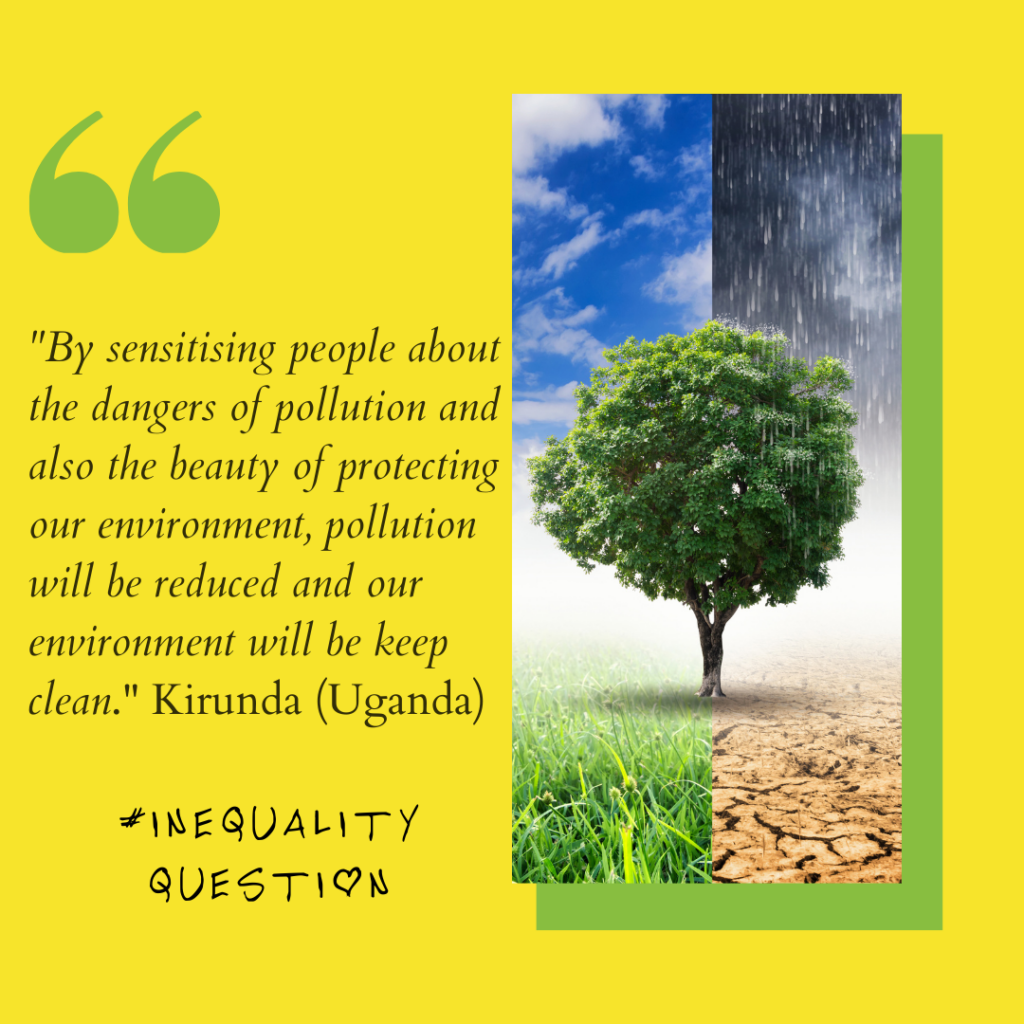

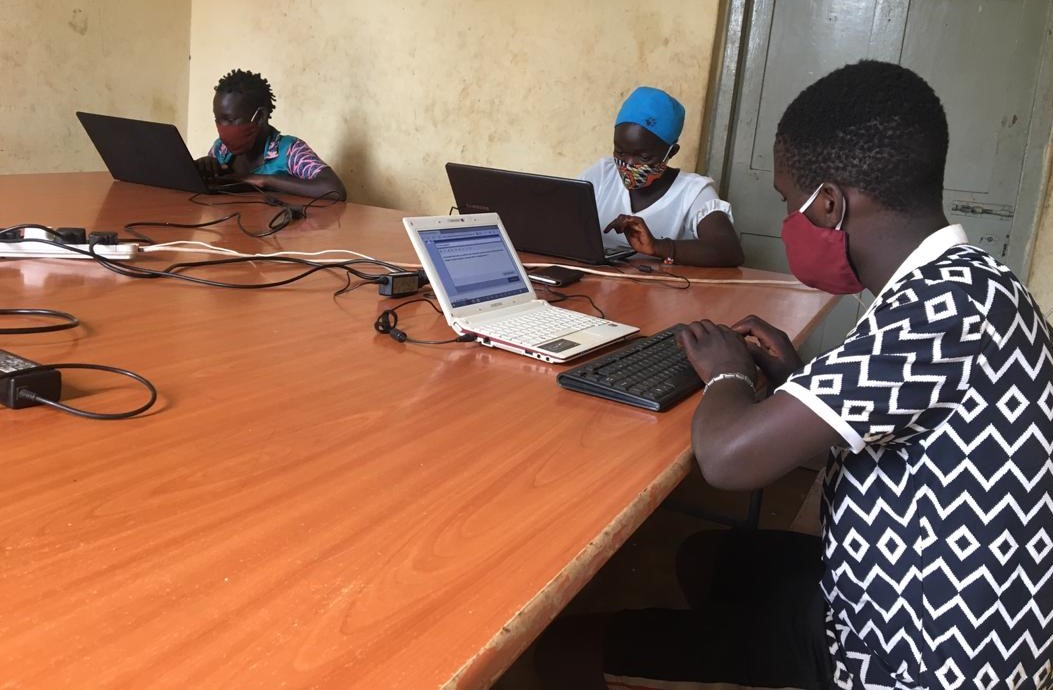
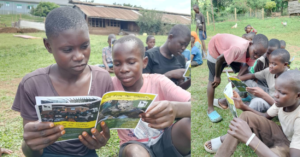


0 Comments